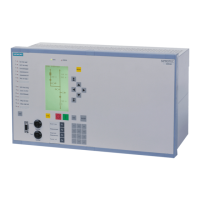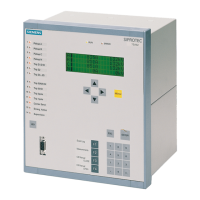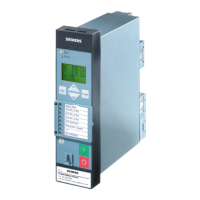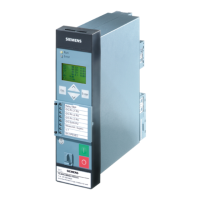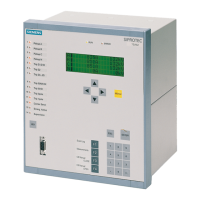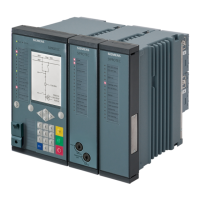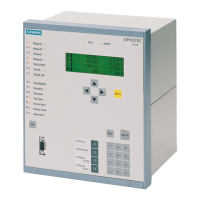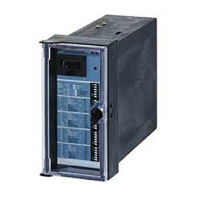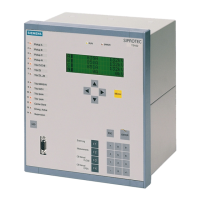Types of Commands
In conjunction with the power system control several command types can be distinguished for the device:
Description
Commands to the Process
These are all commands that are directly output to the switchgear to change their process state:
•
Switching commands for controlling the circuit breakers (not synchronized), disconnectors and ground
electrodes
•
Step commands, e.g. raising and lowering transformer LTCs
•
Set-point commands with configurable time settings, e.g. to control Petersen coils
Internal / Pseudo Commands
They do not directly operate binary outputs. They serve to initiate internal functions, simulate changes of
state, or to acknowledge changes of state.
•
Manual overriding commands to manually update information on process-dependent objects such as
annunciations and switching states, e.g. if the communication with the process is interrupted. Manually
overridden objects are flagged as such in the information status and can be displayed accordingly.
•
Tagging commands (for "setting") of the information value of internal objects, for example switching
authority (remote/local), settings group switching, data transmission block and deleting/presetting
metered values.
•
Acknowledgment and resetting commands for setting and resetting internal buffers or data states.
•
Information status command to set/reset the additional information "information status" of a process
object, such as:
– Input blocking
– Output blocking
Command Sequence
Safety mechanisms in the command sequence ensure that a command can only be released after a thorough
check of preset criteria has been successfully concluded. Standard Interlocking checks are provided for each
individual control command. Additionally, user-defined interlocking conditions can be programmed separately
for each command. The actual execution of the command is also monitored afterwards. The overall command
task procedure is described in brief in the following list:
Description
Check Sequence
Please observe the following:
•
Command Entry, e.g. using the keypad on the local user interface of the device
– Check Password → Access Rights
– Check Switching Mode (interlocking activated/deactivated) → Selection of Deactivated interlocking
Recognition.
2.27.2
2.27.2.1
2.27.3
2.27.3.1
Functions
2.27 Breaker Control
SIPROTEC 4, 7SJ62/64, Manual 355
C53000-G1140-C207-8, Edition 08.2016
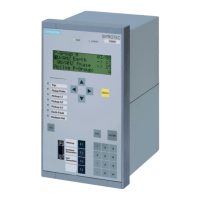
